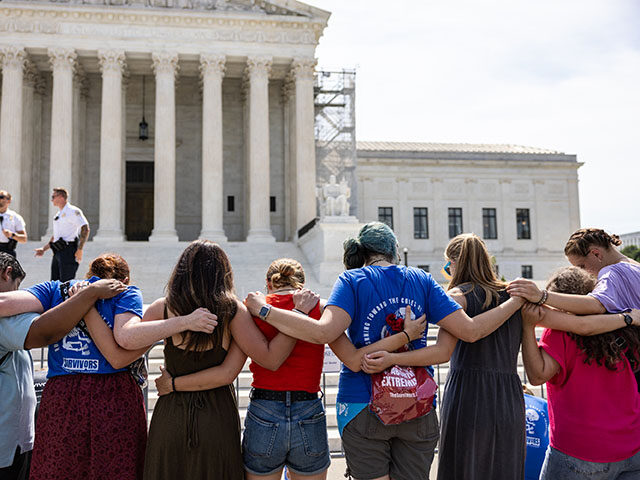Supreme Court Orders Lower Court to Reconsider Religious Challenge to New York Abortion Mandate

The Supreme Court on Monday ordered a lower court to reconsider a case brought by religious organizations against a New York state regulation requiring employers to cover abortions through health insurance plans.
In 2017, New York issued a regulation mandating that employer health insurance plans cover killing unborn babies in abortions. While the regulation narrowly exempts certain religious organizations whose purpose are spreading their religious values, it does not exempt religious organizations with broader missions, like serving the poor, and those that employ or serve people who are not of the same faith or no faith at all. In response, a group of Catholic and Anglican nuns, Catholic dioceses, Christian churches, and faith-based social ministries challenged the regulation.
The Supreme Court notably ordered lower courts to reconsider the case in 2021, and is sending the case back to New York courts for a second time, citing its recent decision in favor of Catholic Charities Bureau.
“New York wants to browbeat nuns into paying for abortions for the great crime of serving all those in need,” said Eric Baxter, vice president and senior counsel at Becket Fund for Religious Liberty. “For the second time in four years, the Supreme Court has made clear that bully tactics like these have no place in our nation or our law. We are confident that these religious groups will finally be able to care for the most vulnerable consistent with their beliefs.”
On June 5, the Supreme Court unanimously sided with Catholic Charities Bureau, ruling that Wisconsin discriminated against the organization by denying tax exempt status and violated the First Amendment’s protection for religion.
Wisconsin has a law, similar to most states and the federal government, that exempts certain religious organizations from paying unemployment compensation taxes. The statute exempts nonprofit organizations “operated primarily for religious purposes” and “operated, supervised, controlled, or principally supported by a church or convention or association of churches.” Catholic Charities Bureau and four of its sub-entities tried to obtain the exemption in 2016 as an organization controlled by the Roman Catholic Diocese of Superior, Wisconsin.
After years of litigation, the Wisconsin Supreme Court ultimately denied the exemption, ruling that Catholic Charities Bureau was not “operated primarily for religious purposes” because they do not engage in proselytization or limit their charitable services to Catholics. However, Catholic Charities Bureau argued that Catholic teachings do not permit “misus[ing] works of charity for purposes of proselytism.”
“There may be hard calls to make in policing that rule, but this is not one,” Justice Sonia Sotomayor wrote for the court.
“When the government distinguishes among religions based on theological differences in their provision of services, it imposes a denominational preference that must satisfy the highest level of judicial scrutiny,” she continued. “Because Wisconsin has transgressed that principle without the tailoring necessary to survive such scrutiny, the judgment of the Wisconsin Supreme Court is reversed, and the case is remanded for further proceedings not inconsistent with this opinion.”
The case is Roman Catholic Diocese v. Harris, No. 24-319 in the Supreme Court of the United States.
Katherine Hamilton is a political reporter for Breitbart News. You can follow her on X @thekat_hamilton.